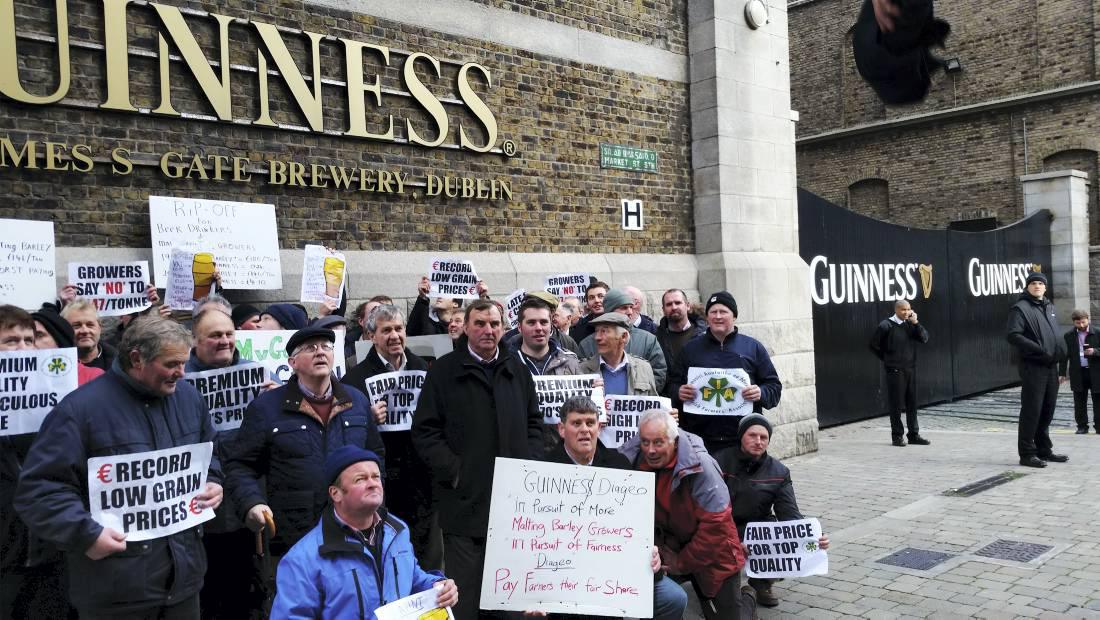The 2014 Boortmalt barley price will not be improved, IFA president Eddie Downey told growers.
At a combative meeting in Carlow on Tuesday night, Downey pledged to work for a new and improved method of price definition for Boortmalt growers, but said that both Boortmalt and Diageo now consider 2014 to be a closed book.
Afterwards, Tom Cushen confirmed that growers who have been actively campaigning on the 2014 price will meet later this week. They will consider whether to accept the IFA position or continue with the unofficial campaign, that has seen protests at both Boortmalt’s Athy premises and the Guinness Storehouse in Dublin.
Downey believed progress was being made towards a goodwill payment to bring the harvest price for contracted grain up to the €152 paid for surplus grain.
“But then it stopped,” he said. He said both the maltster and brewer considered the 2014 price paid in full as the contract had been fulfilled. His opinion was that avenues of negotiation had now been exhausted and the focus should be on improving the price and conditions for next year.
Growers’ grievances
Growers repeatedly pointed to two grievances. Firstly, the band for protein was moved from 9.5-11.6 to 8.8-10.8, a significant change. Introduced in March, when growers had already purchased inputs, it left them afraid to trade their grain forward, especially in the Athy area where protein levels had been very high in 2013. As one farmer said, the effect of recent changes has been to load all the risk on growers. Malt barley chairman Mark Browne did point out that the initial 25/75 protein requirement for each grower had been negotiated away, and that a harvest derogation effectively removed the lower protein limit altogether. This allowed a further 15,000t of grain to be accepted.
Secondly, an anticipated price bounce in July never occurred. The MATIF wheat price is what the Boortmalt price is benchmarked against, and there were accusations that its specification was lowered, curbing an impending price surge due to poor-quality French wheat.
Fintan Conway explained that there was no change in the MATIF wheat specification and won’t be until 2017. Very little grain traded forward on MATIF is ever delivered. It is effectively a virtual market. The forward pricing mechanism was heavily criticised as overly complicated. There were calls for a minimum price over feed and also a proposal that there be a minimum margin over costs.
Lack of confidence
Farmers repeatedly expressed a lack of confidence in the current negotiation team, with calls for directly elected grower reps to be added to those coming through the IFA structure. Downey rejected this, saying current structures must continue, but inviting any interested farmer to contest a seat on the committee.
There was universal agreement that it was not acceptable to negotiate changes in specification once farmers had made their decisions for the coming year. With this in mind, Mark Browne was keen to unite growers and proceed to achieve an early and suitable agreement for 2015. The very public dissatisfaction expressed by growers may well strengthen his hand in this regard.






 This is a subscriber-only article
This is a subscriber-only article









SHARING OPTIONS: